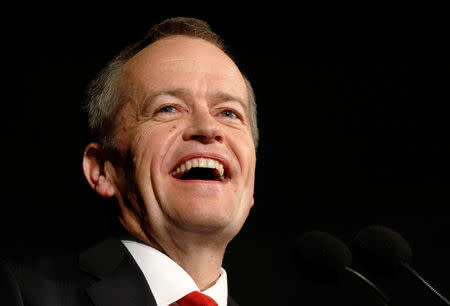Australia's opposition Labor lead over government slips ahead of election: poll

MELBOURNE (Reuters) - The opposition Labor Party's lead over Australia's conservative coalition government narrowed further, while a minor right-wing party gained support, a closely watched opinion poll showed on Monday ahead of a general election on May 18.
The Newspoll was released on the day that early voting was set to begin and Prime Minister Scott Morrison and Labor leader Bill Shorten were set to hold their first televised debate.
Labor's lead fell by a point to 51 percent to 49 percent from the previous poll two weeks ago on a two-party preferred basis, where votes are distributed until a winner is declared, the Newspoll in The Australian newspaper showed.
Morrison's government had trailed Labor by 54 percent to 46 percent in March, before calling the election.
While the race has tightened, Labor is still expected to gain between six and 10 seats to give it the government, the poll showed.
But deals with minor parties could improve the coalition's prospects in preference-vote distributions.
Mining magnate Clive Palmer's United Australian Party, campaigning Donald Trump-style to "Make Australia Great", has overtaken One Nation to be the second-largest minor party, with 5 percent of the primary vote, the poll showed.
Labor has focused on boosting spending on education, health and welfare, promising on Sunday A$4 billion ($2.8 billion) in childcare subsidies to a million low-income families and free dental care, worth A$2.4 billion, for the aged.
Morrison campaigned in Sydney on Sunday on the issue of immigration, promising to cut annual migrant numbers and freeze the country's refugee intake. He was set to head to Western Australia on Monday with promises to boost defense spending.
The Newspoll surveyed 2,136 voters from Friday to Sunday. The sampling error was plus or minus 2.3 percentage points.
($1 = 1.4203 Australian dollars)
(Reporting by Sonali Paul; Editing by Peter Cooney)

